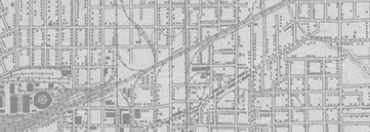


Back
Dr. Toni Glover Oral History
Videotaped oral history interview with Dr. Toni Glover. Standing on a concrete pedestal at the corner of Houston and Elm Streets in Dealey Plaza, eleven-year-old Glover witnessed the Kennedy assassination. Seeing the president's death, emotionally connected to her abusive childhood, had a traumatic impact on her life. Interview recorded at Dr. Glover's home on January 20, 1999 by Bob Porter. The interview is one hour and four minutes long.
Dr. Toni Glover Oral History
01/20/1999
Hi-8 videotape
64 Minutes
Oral History Collection/The Sixth Floor Museum at Dealey Plaza
1999.003.0001
For more than two decades, Dr. Antoinette "Toni" Glover has been an associate professor of English at the University of Scranton in Pennsylvania. Traumatized by the Kennedy assassination, she was an unknown eyewitness for more than thirty years, until visiting The Sixth Floor Museum at Dealey Plaza and identifying herself in the mid-1990s. Based on her description of her clothing and position in Dealey Plaza, archivist Gary Mack was able to find Glover in the Mark Bell film. She was also able to provide a 1964 family photo showing her wearing the same distinctive blue coat, confirming that she was the previously unidentified eyewitness at the corner of Houston and Elm. At the urging of Gary Mack, Glover recorded her very first interview - this 1999 oral history - and shared her memories of President Kennedy and the assassination. Just two years later, Glover left Dallas and moved to Pennsylvania, losing touch with the story for more than a decade. Despite her publicly-available oral history, she was not well known within the assassination research community until she began participating in online discussion groups in 2012. That same year, while beginning research for an autobiographical book project, Glover reconnected with the Museum and recorded a new oral history. She also participated in a unique video discussion with a social psychologist about the impact and trauma of the assassination. Thanks to her powerful storytelling and willingness to share, Toni Glover remains perhaps the best example of how a global event such as the Kennedy assassination can deeply and permanently impact a bystander's life. -- Stephen Fagin, Curator
Dr. Toni Glover Oral History
Videotaped oral history interview with Dr. Toni Glover. Standing on a concrete pedestal at the corner of Houston and Elm Streets in Dealey Plaza, eleven-year-old Glover witnessed the Kennedy assassination. Seeing the president's death, emotionally connected to her abusive childhood, had a traumatic impact on her life. Interview recorded at Dr. Glover's home on January 20, 1999 by Bob Porter. The interview is one hour and four minutes long.
Dr. Toni Glover Oral History
01/20/1999
Eyewitnesses
Oral histories
Interviews
Assassination
Dealey Plaza
Elm Street
Houston Street
Childhood
Glover, Toni
Kennedy, John F.
Dallas
Childhood Recollections (OHC)
Dealey Plaza Eyewitnesses (OHC)
Hi-8 videotape
64 Minutes
Oral History Collection/The Sixth Floor Museum at Dealey Plaza
1999.003.0001
For more than two decades, Dr. Antoinette "Toni" Glover has been an associate professor of English at the University of Scranton in Pennsylvania. Traumatized by the Kennedy assassination, she was an unknown eyewitness for more than thirty years, until visiting The Sixth Floor Museum at Dealey Plaza and identifying herself in the mid-1990s. Based on her description of her clothing and position in Dealey Plaza, archivist Gary Mack was able to find Glover in the Mark Bell film. She was also able to provide a 1964 family photo showing her wearing the same distinctive blue coat, confirming that she was the previously unidentified eyewitness at the corner of Houston and Elm. At the urging of Gary Mack, Glover recorded her very first interview - this 1999 oral history - and shared her memories of President Kennedy and the assassination. Just two years later, Glover left Dallas and moved to Pennsylvania, losing touch with the story for more than a decade. Despite her publicly-available oral history, she was not well known within the assassination research community until she began participating in online discussion groups in 2012. That same year, while beginning research for an autobiographical book project, Glover reconnected with the Museum and recorded a new oral history. She also participated in a unique video discussion with a social psychologist about the impact and trauma of the assassination. Thanks to her powerful storytelling and willingness to share, Toni Glover remains perhaps the best example of how a global event such as the Kennedy assassination can deeply and permanently impact a bystander's life. -- Stephen Fagin, Curator









